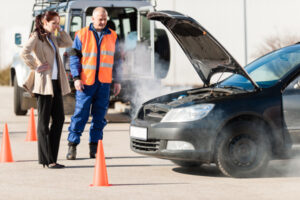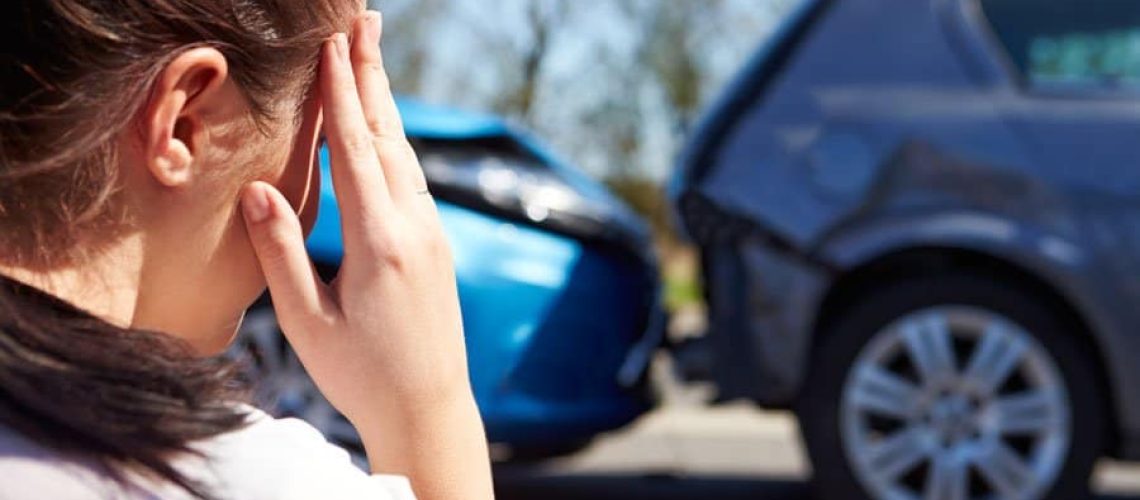 If you’ve ever been involved in an auto accident, you no-doubt remember the feeling of shock, the sense of time slowing down, and the fear and confusion that sets in once the dust has settled.
If you’ve ever been involved in an auto accident, you no-doubt remember the feeling of shock, the sense of time slowing down, and the fear and confusion that sets in once the dust has settled.
If you’ve never been involved in a car accident, then you’re lucky. However, someday your luck may run out and you will need to be prepared.
There are of course serious and possibly fatal car accidents that require immediate emergency medical attention. However, the majority of car accidents are not fatal.
That said, even “minor” accidents can have long-term physical and financial ramifications. There are also latent head injury symptoms to watch out for.
So, here is a breakdown of what you should do if you’ve been involved in one of these auto accidents.
Stay at the Scene of the Accident
The first thing you should do is stay at the scene of the accident.
Hopefully, your car can be safely driven after a collision and isn’t disabled—in which case you should move it off the road but not too far from where the accident occurred—but if it cannot be moved then don’t take off on foot either!
If multiple people have been hurt or injured during the accident, they will need help. The police need to be called. Car insurance information needs to be exchanged. Not to mention there may be issues with determining who was at fault, which will get even murkier if time goes by and you aren’t there to tell your side of the story.
Check for Injuries
First and foremost, make sure you yourself are okay. Even minor accidents can lead to serious injuries, which may not be readily apparent as their symptoms are often latent (not manifesting until hours or even days following the accident).
If you are okay, check on your passengers if there were any in your vehicle. Then, check the person or party in the other vehicle.
The first priority is everyone’s safety.
Be sure not to move anyone who may have suffered serious injury. It is important that emergency personnel arrive at the scene and perform routine tasks such as moving them from hazardous situations or stabilizing injured persons for professional medical assistance.
Report The Accident
 This one seems like it would go without saying, but you’d be surprised how often people forget this part until too much time has passed.
This one seems like it would go without saying, but you’d be surprised how often people forget this part until too much time has passed.
Report the accident immediately to local enforcement authorities so they can begin investigating what happened and get pedestrian traffic flowing again if necessary. In addition, you need to contact the proper insurance companies as soon as possible so they can begin processing your claim.
You will need all of your information on hand for the accident report: license plate number(s), insurance policy number, license and registration, and anything else that would be useful in this situation.
Gather as Much Information as Possible
Make sure you get the driver’s name, address, telephone number, and insurance information. Most people will have this on hand, so go through it at the scene.
If they don’t have their license on them (for whatever reason), ask for their driver’s license number instead. If they don’t know it, the police will make sure to get this information for you for the legal process that will go forward following the incident. When police arrive at the scene, they’ll have everyone exchange insurance information if you and the other driver haven’t done so already.
Ask any witnesses to the accident for contact information as well. Get their names, addresses and phone numbers. You want to record what they witnessed as soon as possible, while it’s still fresh in everyone’s minds. This information can help you in the future, if you need to go to court.
Take Pictures of the Damage
Likewise, take pictures of the accident scene (or at least get someone else there to do it if you can’t).
You will want photos documenting any damages caused to your vehicle in the accident—no matter who was at fault. This can be helpful documentation later on. Insurance companies will need them and they can be used to back up witness testimonials.
In fact, it’s probably best to take pictures of damage on all vehicles involved.
Contact Your Insurance Provider

Contact your insurance representative and make an insurance claim as soon as possible—but don’t be tempted to do it over the phone if they ask. Once you’ve filed an official report, this cannot be undone and any changes down the road will require more paper work. The last thing you want is a problem further down the line with your policy over a simple violation of procedure.
For this reason, it may be best to consult with an attorney who can help you best navigate the insurance claim process.
Most auto insurers require that you file a statement regarding the accident within a specific timeframe following—usually around ten days—and they want the statement from you, not from a doctor or an attorney. In fact, most people file a claim with their insurer within this time frame.
It is a good idea to contact them yourself once you’ve had time to recover from the shock of your accident and have been able to consider everything from a more objective standpoint (possibly even after consulting with an attorney).
Taking into consideration all that has been discussed here, let them know where the accident happened and that you were involved—provide your insurance company with as much information as possible and in a way that will get you the most insurance coverage while still remaining truthful.
Seek Medical Attention as Soon as Possible

As stated above, even minor accidents can have serious consequences, and sometimes you won’t notice symptoms of an automobile accident injury until some time after the accident.
In order to have a clear picture of just how badly you’re hurt and to protect your legal rights, it’s important that you seek medical attention as soon as possible after auto accident injury. If you can’t afford a doctor’s visit, go to the nearest emergency room so that the hospital can check on your condition and provide treatment if necessary.
No-fault states have mandatory PIP (Personal Injury Protection) insurance laws, but there is typically a timeframe in which to seek medical care in order to fully benefit.
For example, if you’ve been in a car accident in Florida, you need to seek medical care within 14 days of the accident to receive PIP benefits.
If You Get a Call from Your Insurance Company…
Make sure everything mentioned in any affidavit and police report is accurate and truthful. The last thing you want to do is be caught lying about the accident on your auto insurance claim, which many people do for fear of losing their no-fault benefits or worse, having lawsuits brought against them.
You also want to ensure that there are no surprises such as pending property damage or medical bills for personal injury from the other driver’s insurance company after you have already received a reimbursement check from your own insurer.






